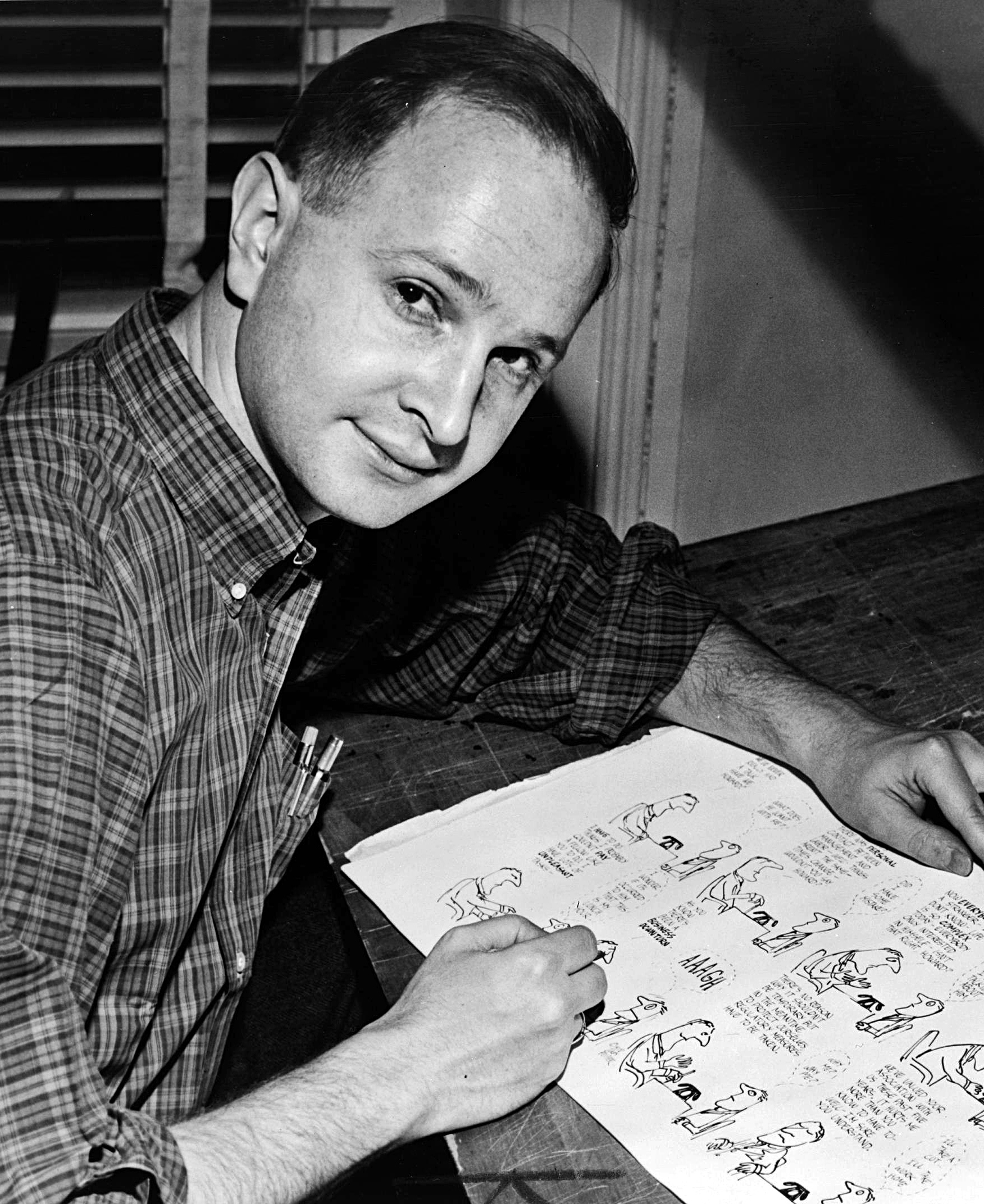Jules Feiffer
 Jules Ralph Feiffer ( ; January 26, 1929 – January 17, 2025) was an American cartoonist and author, who at one time was considered the most widely read satirist in the country. He won the Pulitzer Prize in 1986 for editorial cartooning and, in 2004, Feiffer was inducted into the Comic Book Hall of Fame. He wrote the animated short ''Munro'', which won an Academy Award for Best Animated Short Film in 1961. The Library of Congress has recognized Feiffer's "remarkable legacy", from 1946 to the present, as a cartoonist, playwright, screenwriter, adult and children's book author, illustrator, and art instructor.
Jules Ralph Feiffer ( ; January 26, 1929 – January 17, 2025) was an American cartoonist and author, who at one time was considered the most widely read satirist in the country. He won the Pulitzer Prize in 1986 for editorial cartooning and, in 2004, Feiffer was inducted into the Comic Book Hall of Fame. He wrote the animated short ''Munro'', which won an Academy Award for Best Animated Short Film in 1961. The Library of Congress has recognized Feiffer's "remarkable legacy", from 1946 to the present, as a cartoonist, playwright, screenwriter, adult and children's book author, illustrator, and art instructor.When Feiffer was 17 (in the mid-1940s), he became assistant to cartoonist Will Eisner. There, he helped Eisner write and illustrate his comic strips, including ''The Spirit''. In 1956, Feiffer became a staff cartoonist at ''The Village Voice'', where he produced the weekly comic strip titled ''Feiffer'' until 1997. Feiffer's cartoons became nationally syndicated in 1959 and then appeared regularly in publications including the ''Los Angeles Times'', the ''London Observer'', ''The New Yorker'', ''Playboy'', ''Esquire'', and ''The Nation''. In 1997, he created the first op-ed page comic strip for ''The New York Times'', which ran monthly until 2000.
Feiffer wrote more than 35 books, plays, and screenplays. His first of many collections of satirical cartoons, ''Sick, Sick, Sick,'' was published in 1958, and his first novel, ''Harry, the Rat With Women'', in 1963. In 1965, Feiffer wrote ''The Great Comic Book Heroes'', the first history of the comic-book superheroes of the late 1930s and early 1940s and a tribute to their creators. In 1979, he created his first graphic novel, ''Tantrum''. By 1993, Feiffer began writing and illustrating books aimed at young readers, with several of them winning awards.
Feiffer began writing for the theater and film in 1961, with plays including ''Little Murders'' (1967), ''Feiffer's People'' (1969), and ''Knock Knock'' (1976). He wrote the screenplay for ''Carnal Knowledge'' (1971), directed by Mike Nichols, and ''Popeye'' (1980), directed by Robert Altman. At the time of his death, Feiffer was working on a visual memoir. Provided by Wikipedia
1
